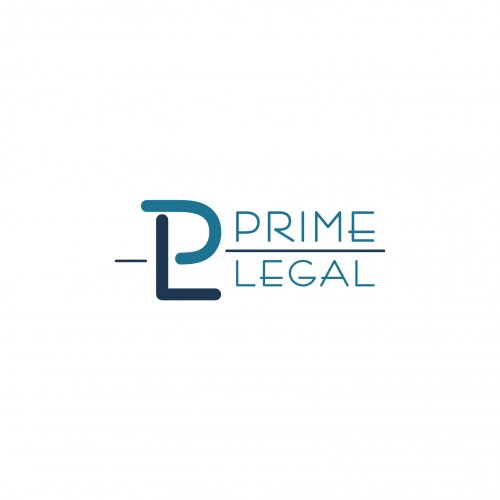Best Admiralty & Maritime Lawyers in Tbilisi
Share your needs with us, get contacted by law firms.
Free. Takes 2 min.
List of the best lawyers in Tbilisi, Georgia
About Admiralty & Maritime Law in Tbilisi, Georgia
Admiralty and Maritime Law, though traditionally associated with coastal regions and ports, has relevance even in landlocked cities like Tbilisi due to Georgia's extensive regulatory and trading network via the Black Sea. Tbilisi serves as an administrative and judicial hub for maritime matters due to its role as the capital city. The jurisprudence encompasses a wide array of issues related to shipping, navigation, waters, commerce at sea, and other legal contexts. Understanding how Tbilisi fits into the maritime legal framework is essential for addressing the unique challenges and opportunities in this field.
Why You May Need a Lawyer
Several situations might necessitate seeking legal advice in the domain of Admiralty & Maritime Law in Tbilisi. These include:
- Contract Disputes: In cases where agreements related to shipping or maritime services are breached, legal assistance is crucial.
- Shipping Accidents: Incidents at sea involving vessels can lead to liability issues that require expert legal intervention.
- Environmental Regulations: Compliance with maritime environmental standards is complex and legal guidance could be necessary.
- Insurance Claims: Navigating claims involving marine insurance policies can be complicated, necessitating professional advice.
- Cargo Disputes: Issues related to cargo damage or loss during transit often need legal resolution.
Local Laws Overview
Georgia's legal framework for Admiralty and Maritime Law is influenced by international maritime conventions and domestic regulations. Key aspects include:
- Registration of Vessels: Regulations governing the registration and licensing of vessels under the Georgian flag.
- Maritime Safety: Compliance with safety standards and procedures, including crewing and vessel maintenance requirements.
- Port Regulations: Local statutes control port operations, including docking, loading, and unloading procedures.
- Environmental Protections: Laws focused on preventing maritime environmental damage form a critical part of this sector's regulation.
Frequently Asked Questions
What is Admiralty and Maritime law?
Admiralty and Maritime law covers legal issues related to ships, shipping, fishing, and coastal activities. It governs everything from business-related damages to personal injury cases arising in maritime contexts.
How does Georgia's location influence its Admiralty laws?
While Tbilisi is inland, Georgia's access to the Black Sea influences its economic and legal contexts for maritime trade and regulation.
What jurisdictions apply in maritime cases?
Maritime cases in Georgia may fall under national law, but international treaties and conventions also frequently apply.
Can maritime law handle environmental violations?
Yes, maritime law in Georgia incorporates environmental regulations aimed at protecting aquatic ecosystems from pollution and other violations.
How are maritime contracts enforced in Georgia?
Contracts are enforced through Georgian courts, which may also recognize and enforce international arbitration awards.
Is there a specific court for maritime disputes in Georgia?
While there is no dedicated Admiralty court, maritime cases are often handled in Georgia's civil courts.
What is the process for registering a ship in Georgia?
The registration process involves the Ministry of Economy and Sustainable Development and includes compliance checks with safety and ownership documentation.
What duties do shipowners have under Georgian law?
Shipowners are required to adhere to safety, environmental, and operational regulations set by national and international bodies.
Do I need special insurance for a vessel operating from Georgia?
Yes, marine insurance is necessary to cover risks associated with maritime operations, such as hull and machinery coverage.
Are there any taxes specific to maritime operations in Georgia?
Maritime operations may be subject to specific port fees and taxes depending on the activities and services utilized at Georgian ports.
Additional Resources
For further assistance regarding Admiralty and Maritime law in Tbilisi, consider the following:
- Ministry of Economy and Sustainable Development: Responsible for ship registration and maritime policy.
- Georgian Maritime Agency: Provides regulatory oversight of maritime operations.
- International Maritime Organization (IMO): As a global standard-setting authority, its conventions influence national laws.
- Tbilisi Bar Association: Can help locate qualified maritime lawyers.
Next Steps
If you require legal assistance in maritime matters, consider these steps:
- Consult a Legal Professional: Begin with a consultation with a lawyer specializing in Admiralty & Maritime law.
- Gather Necessary Documentation: Prepare all relevant documents, agreements, and evidence related to your maritime issue.
- Explore Settlements: Depending on the situation, a settlement may be a viable option to resolve disputes swiftly.
- Proceed with Legal Action if Needed: If necessary, proceed with litigation through the Georgian courts, utilizing your lawyer’s guidance.
Lawzana helps you find the best lawyers and law firms in Tbilisi through a curated and pre-screened list of qualified legal professionals. Our platform offers rankings and detailed profiles of attorneys and law firms, allowing you to compare based on practice areas, including Admiralty & Maritime, experience, and client feedback.
Each profile includes a description of the firm's areas of practice, client reviews, team members and partners, year of establishment, spoken languages, office locations, contact information, social media presence, and any published articles or resources. Most firms on our platform speak English and are experienced in both local and international legal matters.
Get a quote from top-rated law firms in Tbilisi, Georgia — quickly, securely, and without unnecessary hassle.
Disclaimer:
The information provided on this page is for general informational purposes only and does not constitute legal advice. While we strive to ensure the accuracy and relevance of the content, legal information may change over time, and interpretations of the law can vary. You should always consult with a qualified legal professional for advice specific to your situation.
We disclaim all liability for actions taken or not taken based on the content of this page. If you believe any information is incorrect or outdated, please contact us, and we will review and update it where appropriate.








